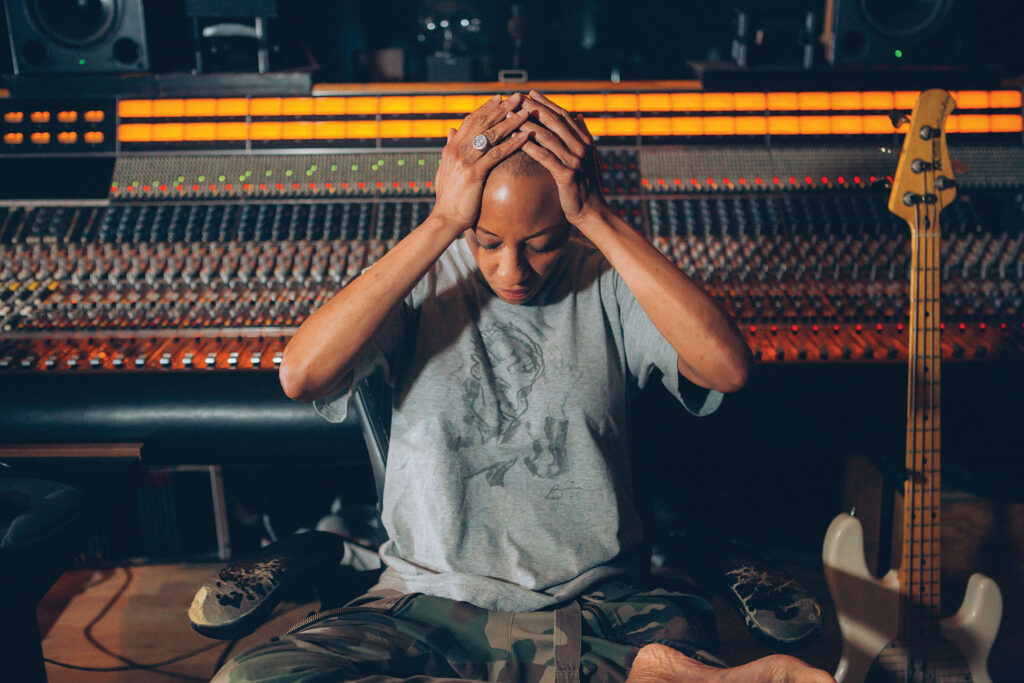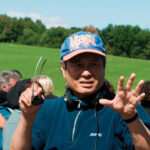Kingston-based musician Gail Ann Dorsey answered David Bowie’s call. Boy, did she ever.
By Sean McAlindin
Music is music. If it moves you, it moves you. If it doesn’t, then it doesn’t.” So simple, yet so profound—which makes a lot of sense coming from a bass player.
Gail Ann Dorsey, one of the greatest session bass players of all-time, came of age in an all-Black neighborhood in 1960s West Philadelphia. The “surprise” baby of the family, she grew up surrounded by the music of her older siblings, soaking in the sounds of Jimi Hendrix, Joni Mitchell, Carole King, Olivia Newton-John and The Carpenters.
“I always knew I wanted to play music,” she says. “It was a language I wanted to speak—it meant more than words did.”
Dorsey taught herself to play guitar with some boys across the street who jammed on Grand Funk Railroad, Chicago and Heart. Then, she discovered Queen.
“The guitar playing, the songs, the intricacy of it—it’s all so unique and original,” she says. “If they played three nights in Philly, I was there all three nights. They’re still the greatest band I’ve ever seen live.”
Little did she know that two decades later she’d sing Freddie Mercury’s part on “Under Pressure” in a classic duet with another pop rock legend, David Bowie.
After brief stints in LA and NYC, Dorsey jetted to London where she found work as a session player in the busy pub scene. Her first big break came at a session for Boy George.
“I’d play three or four times a week,” Dorsey says. “It was just enough to eat, buy cigarettes, pay a little bit of rent, but I was only 20 or whatever. I don’t really know the answer to how anybody finds their path. Everybody has a different way to reach their goals or dreams. But one thing that stands true is putting yourself out there and not saying no. That’s the first thing that has to be done and then you see where it leads you.”
After a dozen years of successful work in England, Dorsey connected with Sara Lee, a bassist for Gang of Four, The B-52s and Indigo Girls.
“Always nice to meet another female bass player because there weren’t very many of us,” she says. “Now there are hundreds of us, which is great to see.”
Dorsey then decided to move to Woodstock, NY for its community of artists and proximity to NYC. At first, she lived with Lee, then found her own place in Kingston where she’s been for some 30 years.
In 1995, Dorsey was songwriting at the Bath, England home of Tears for Fears frontman Roland Orzabal when she got a call. It was Bowie. He’d watched her play on television from a hotel room seven years ago and now he wanted her to join his band.
She hung up the phone and told Orzabal the news.
“He said, ‘If Bowie calls you, you have to go.’ I was terrified, to be honest. I didn’t know if I could handle his music. But what was beautiful about working with him is he had so much confidence and encouragement for all of his musicians. He was so giving and free, super funny, kind and always joking. He was on our side. ‘There’s nothing you can’t do,’ he’d say. ‘You can do this.’ It was a growing experience for me. He was the most incredible mentor. It’s like being an apprentice to Michelangelo. I couldn’t have wished for anyone better. I don’t know why he called me. It was a blessing from the sky. I feel very fortunate. I must have some good karma somewhere.”
Dorsey toured and recorded with Bowie through 2013 and is featured on albums Earthling, Heathen, Reality and The Next Day. After years of session work with everyone from Gwen Stefani to Lenny Kravitz, The National and Ani DiFranco, she’s about to release her first solo record since 2004.
“I’ve never been a person who likes just one kind of music,” Dorsey says. “I want to play everything. But I think I’ll put a few things out and see how they live in a world. I feel like there’s something more to say.”
Gail Ann Dorsey performs at Tarrytown Music Hall, opening for Madeleine Peyroux on November 15 at 8pm.
gail storm (above) The world-class bass player and Woodstock resident loved working with David Bowie and other rock legends. (Photo by Thomas Eberhart-Smith)
















Comments are closed.